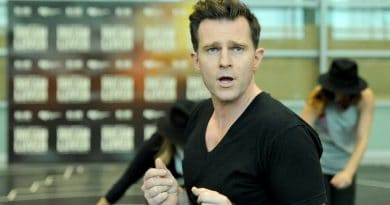How performers can enter the property market
“Investing in property is simple, but not easy”…
Two not so secret things about me: I’m cheap and I love property. I don’t do coffee, cabs, gyms, cover charges or drinks over $10. After the Sydney opening night of Matilda, I walked 20 minutes to Town Hall station, at 4am, and got the night-rider home in my Carla Zampatti and some thongs I had in my backpack.

A recent Bankwest report said that, in today’s market to save a 20% deposit, an average Sydney sider would have to save for 7.9 years; Melbourne 5.8 years and Brisbane 4.1 years. Here’s some fun maths: if you buy 2 coffees a day, over that 7.9 years, that’s 20K you’ve spent on coffee, or one fifth of your deposit. You might be awake, but you’ll be renting at 40.
The key to performers owning property is twofold:
- The deposit
- Your borrowing capacity
Truthfully, it is rough that we happen to live in one of the most expensive places in the world. We face astronomical property prices and rent, yet are still held ransom to that great Australian dream of owning a patch of dirt. Hear this- hard does not equal impossible. Now, to some people the idea of giving up coffee for 8 years would be the same as asking me to give up house wine or Nike Frees. Not. Gonna. Happen. But in order to save, you have to give up SOMEthing – make a sacrifice. If not coffee, something else.
It is estimated that you need 1.4 million in your Superannuation to retire comfortably. To me, that figure looks impossible (given contract work, overseas tours which often don’t pay Super and Equity minimums.) The upside is, musical theatre performers are in a unique position to save cash- given long contracts, tours and per-diems. Sometimes, the tricky part isn’t saving or earning enough money, it’s that the banks don’t consider you a safe bet to lend to because your employment is unstable/contract.
Here are my tips for getting into the property market:
Visit a Mortgage broker
A mortgage broker is the middle-man between you and the banks. Their services are free. After discussing your financial situation, future plans and goals, they will approach banks on your behalf to determine the best lender for you and tell you how much you can borrow. (Or tell you to save more, get a longer contract, prove previous earnings etc.) It means you don’t have to approach several banks yourself. Either way, you’ll discover exactly what you need to do to get that home loan.
Banks will lend to you if they think your employment is stable. A contract of 12 months/Run of Play, is considered full time employment, and you should have no problem getting a loan. Don’t wait until halfway through the contract to approach the broker, as you have less time left on your contract. If your contract is under 12 months, you’ll have a hard time getting a loan unless you can prove stable previous earnings for the past 3 years. Remember, just because you see a broker and get pre-approval for a loan, doesn’t mean you have to buy anything. You’re just giving yourself options.
Make the tax system work for you
Consider a tax return forced savings, not shopping money come July. Performers can claim a lot against their taxable income, and can take advantage of income averaging. Income averaging is the ATO recognising that we have good and bad years: 100K one and 30K the next. They allow you to average your income over the previous 2, 3 or 4 years so you pay less tax in the years you earn well. Get an accountant who knows the tax law for Performing Artists back to front, to maximise your return and stick that lump sum straight in a term deposit so you can’t touch it.
Once you own a property (if it is investment and tenanted) there are SO many ways you can claim against your income tax for the ‘losses’ you make on that property: depreciation, strata, water, council, interest, management fees etc. Find a tax accountant who understands investment property law.
Take honest stock of your current position
You need to be brutally honest with yourself regarding your financial position. Go through your bank statement with 2 coloured highlighters- put all the essentials in pink (petrol, rent, groceries, bills), all the non-essentials in green. If you see a lot of green on your statement, that’s great news!! There are lots of areas to save more money. If it’s mainly pink, you may need to consider living somewhere cheaper, get more public transport etc.
Move out of Surry Hills & stop eating cakes made from cashews
Lots of Gen-Y desperately want to own property but they don’t want to give up anything in order to get it. They want their Lizzy Bay apartment, while constantly eating at About Life and getting Ubers home from The Winery to check on their sausage dog, who is eating organic mince and celery out of the Vitamix.
The average house price in Sydney today is 9 time the average yearly income, whereas 15 years ago it was 4 times the average income. What I’m saying is you need to live in Marrickville while you save up for your apartment in Ashfield. Not live in Clovelly while you save up for your terrace in Paddington. Unless you come from coin, in which case, you lucky devil! If you move somewhere cheaper in the meantime, let’s say your rent drops from $400 to $250 a week, you’ll save 8K a year, or 62K over 8 years- almost your whole deposit. Otherwise, you’re just paying someone else’s mortgage for them instead of your own.
Appreciate small saving disciplines
The key to achieving your savings goal is consistency and forming good habits. Looking at a figure of 80-90K for a deposit and having nothing, can seem impossible. People believe that in order to achieve this they can never eat out again. Not true! The key is small habits which add up over time- i.e. bringing your lunch to work, taking public transport etc.…
Consider the following:
- Coffee- 2 p/day @ $3.50 = $2555 p/year
- Buying lunch at work- $12 = 3120 p/year
- Gym membership @ $20 p/wk = 1040 p/year
- Going out for drinks/dinner @ $60 p/occasion = $3120 p/yr
Rent-vest
The average 2-bdm apartment in Bondi today is 900K, the average rent of the same apartment is 690 p/week. If you borrowed 800K to purchase this place, at an interest rate of 4.5% (quite low), your repayments would be $934 a week. The point being – you are $244 a week better off to rent the same apartment rather than to buy it. Furthermore, who can afford to borrow 800K? But in 30 years I won’t own the place I hear you say!? Buy where you can afford to (read; up and coming area) and rent where you want to live.
Generally speaking you are finally better off to purchase your first place as an investment property rather than as owner-occupier and rent in the suburb you want to live. The benefit is two fold; firstly, properties further out are more affordable so you can get into the market sooner, and secondly, treating your first purchase as an investment means you can access tax concessions such as negative gearing and pay less tax (which you can’t do if you live in it.)
Avoid Mortgage insurance: Get your parents to go guarantor (if possible)
Lenders Mortgage Insurance (LMI) is another cost the banks make you pay if you put down less than 20% of the purchase price. This can be anywhere from 1K to 100K depending on how much you put down- it goes up the less you put down, because you are considered more risky to the banks. With a guarantor, you are not required to pay LMI, even if you put down less than 20%.
Getting your parents to guarantor part or all of your loan means that if you can’t pay your mortgage (default), they are financially responsible to do so. They don’t need to fork out to do this, they just have to sign a piece of paper which places their home/asset as security against your new purchase. The benefit to you is: it increases your borrowing capacity and gets you out of LMI.
Work a part time job between contracts
Many performers save well when in contract, but then live off their savings between gigs. The problem is, when a contract ends, you often don’t know when you’ll work next. Or if you do, it may be months without income. My casual jobs have included: sports coach, dental assistant, research assistant, receptionist, admin girl, fabric cutter at Lincraft, speed typist and a West Tigers promo girl. That last job made me dumber.
Live at home for a year or two and save (if possible)
I know this isn’t an option for everyone, either because of proximity or because you intermittently want to shank your mother, but by living at home for a year or two and saving well, you can get a great head start on that deposit. For rent of $300 a week, living at home for two years will save you over 30K.
Stop paying someone to do things you can do yourself
Today it’s common to pay others to do things our parents did for themselves: paint our nails, wax our unmentionables, stand next to us at the gym and tell us how many pushups to do, dye our hair, make our meals and send them to the theatre, re-hem our pants, fix the leaking tap or change the tyre. These are all things we can do ourselves with a little YouTube and imagination. Buy some tweezers, a slow cooker and some Tupperware – your savings will pile up.
A final thought…
Psychologically speaking, in our business people often struggle with feeling lost, wandering through life without having a ‘home’, constantly on the move. Having some bricks and mortar to your name can help you to feel stable, giving you a base and some permanency in this unstable, touring and changing world of acting. There is also a psychology of enforced savings, which helps you to become more responsible with your money if you have that goal of saving for a deposit or paying a property off. For this to work, you have to think in terms of opportunity cost. I.e. don’t think, I can’t go out tonight because I’m saving. Consider what you’re gaining! If I stay in tonight, I can put that money towards my next holiday. Cask wine it is! Goon is surprisingly good these days.





Great Article Rachel- Thanks !
Excellent article Rachel this info works for all in the arts no matter what state your currently living in. Cheers
Well done Rach, great information , article and motivation! You are a superstar x
Very inspiring! Thanks Rachel for the great article.